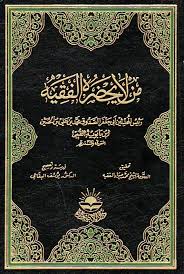
Hasan ibn Ali ibn Muhammad was the 11th Imam of Twelver Shia Islam, after his father Ali al-Hadi. He was also called Abu Muhammad and Ibn al-Ridha. Because Samarra, the city where he lived, was a garrison town, he is generally known as al-Askari. Al-Askari married Narjis Khatun and was kept under house arrest or in prison for most of his life. According to some Shia sources, he was poisoned at the age of 28 on the orders of the Abbasid caliph Al-Mu'tamid and was buried in Samarra. It was known that many Shia were looking forward to the succession of his son, Muhammad al-Mahdi, as they believed him to be the twelfth Imam, who was destined to remove injustice from the world.

Jumu'ah, also known as Friday Prayer or Congregational Prayer, is a prayer (ṣalāt) that Muslims hold every Friday, just after noon instead of the Zuhr prayer. Muslims pray ordinarily five times each day according to the sun's sky path regardless of time zones.

Abu 'Abd Allah Muhammad ibn Muhammad ibn al-Nu'man al-'Ukbari al-Baghdadi, known as al-Shaykh al-Mufid and Ibn al-Mu'allim, was a prominent Twelver Shia theologian. His father was a teacher (mu'allim), hence the name Ibn al-Mu'allim. The title "al-Mufid" was given to him either by Muhammad al-Mahdi, the twelfth Shia Imam, or by al-Rummani, a Sunni scholar, after a conversation with him. The leader of the Shia community, he was a Mutikallim, theologian, and Shia jurist.

Narjis was reportedly the wife of Imam Hasan al-Askari and the mother of the final Imam of Twelver Shia Islam. Her name has been recorded as Narjis, Saiyra, Katrina, Lilliana, and Anna in books. more sources have described her as a "Roman princess" who pretended to be a slave so that she might travel from her kingdom to Arabia. Mohammad Ali Amir-Moezzi, in Encyclopedia of Iranica, suggests that the last version is "undoubtedly legendary and hagiographic". According to Ibn Babawayh's account, Narjis saw Mary, the mother of Jesus, and Fatimah, the daughter of Muhammad, in her dreams and asked for her hand in marriage with Imam Al Askari.

The Mahdi is an eschatological redeemer of Islam who will appear and rule for five, seven, nine or nineteen years before the Day of Judgment and will rid the world of evil.

Man Lā Yahḍuruhū al-Faqīh is a Hadith collection by the famous Twelver Shia Hadith scholar Abu Jaʿfar Muḥammad ibn ʿAli ibn Babawayh al-Qummi, commonly known as Ibn Babawayh or Sheikh al-Saduq. This work is included among the Four Books of Twelver Shia Islam.
Shaykh Tusi, full name Abu Jafar Muhammad Ibn Hassan Tusi, known as Shaykh al-Taʾifah was a prominent Persian scholar of the Twelver school of Shia Islam. He became known as "Sheikh of the Sect ," authored two of the four main Shi'i books of hadith, Tahdhib al-Ahkam and al-Istibsar, and is believed to have founded the Najaf Hawza. He also counts as the founder of Shia jurisprudence.

Abu Ja'far Muhammad ibn 'Ali ibn Babawayh al-Qummi, commonly referred to as Ibn Babawayh or al-Shaykh al-Saduq was a Persian Shi'ite Islamic scholar whose work, entitled Man la yahduruhu al-Faqih, forms part of The Four Books of the Shi'ite Hadith collection.
The Major Occultation, according to Shia, is Mahdi's second occultation. According to Twelvers the Major Occultation which came around 329/941 is still in effect, and will not end until the End of Time when the Mahdi returns to reestablish Justice on earth.
Abul Qasim Husayn ibn Ruh Nawbakhti was the third of the four deputies appointed by twelfth Shia Imam Muhammad al-Mahdi while he was in the Minor Occultation. He was a native of Qum who migrated to Baghdad during the time of Uthman ibn Sa'id al-Asadi, the first deputy. Al‑Nawbakhti was a companion of the second deputy Abu Jafar Muhammad ibn Uthman and became his agent for several years. After the death of al-Nawbakhti, Abul Hasan Ali ibn Muhammad al-Samarri was appointed as the fourth deputy of Muhammad al-Mahdi.

Badā' is a Shia Islamic concept regarding God. It refers to God revealing his will about a decision, wherein the people thought his will had already been made on that issue, as the Shia believe that God has knowledge of the ultimate outcome.

Hadith of Jesus Praying Behind Mahdi refers to a collection of hadith related about the prophecy that Jesus will follow Mahdi's lead in salat (prayer) after he descends. Mahdi is the twelfth Imam of the Shia muslims and salat is the Islamic practice of worship of God which muslims perform five times a day. The prophecy is narrated in numerous hadith collections. A total of 29 Hadiths relate the return of Jesus, and his prayer with Mahdi's lead.

The Sahifah of al-Ridha, also known as the Sahifat of al-Reza and the Musnad al-Imam al-Ridha, is a collection of 240 hadiths attributed to Ali ibn Musa al-Ridha, the eighth Shiite Imam.

According to Shia sources Nafs-e-Zakiyyah is one of the apocalyptic characters that Muhammad al-Mahdi, the savior of Muslims and the final Imam of the Twelve Imams, will send as his envoy to Mecca before his reappearance. He will be killed in Mecca and his death is one of the signs of Muhammad al-Mahdi's reappearance.

The voice from sky are words spoken by Gabriel claimed as one of the signs of Muhammad al-Mahdi's reappearance in Islamic traditions.

Al-Ghaybeh is a theological book on the subject of the occultation of the Twelfth Imam of the Twelvers, Muhammad al-Mahdi. The aim of book returns to the doubtful atmosphere in that period and neediness to proving the occultation by reason and narration.
The Dua-e Ahad or "Dua Ahd" is an Arabic language allegiance supplication prayer to Muhammad al-Mahdi, twelfth Imam of Shia Islam.









